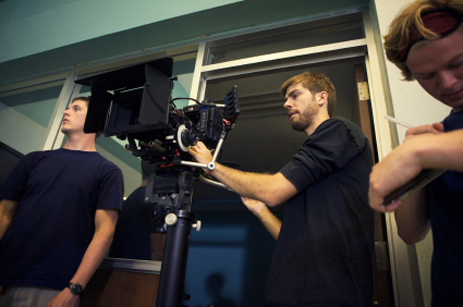by Jovan Johnson, Esq.
Being approached to have your home appear in a movie is a pretty unique experience. No matter how glamorous it may seem, it’s important that you as a homeowner consider the issues involved before saying yes. While accepting an offer could provide extra income, great stories, and autograph opportunities, you could also find yourself stuck with unexpected bills and law suits.

Here are 8 common issues you should consider before renting your home for filming…
1) Flexibility
Location shoots are rarely completed within the time constraints of a traditional eight hour work day and may go into the early morning. Furthermore, movie shoots can easily godays or even weeks over schedule. Will the production company be required to pay additional money if shooting lasts longer than originally agreed?
2) Neighbors
How will your neighbors respond to significantly increased street traffic, noise, and light? Neighbors should be given all relevant information, including the projected length of the shoot. Listen to their concerns. Production may be slowed if quirky Ms. Smith decides to lodge complaints by calling city hall daily. Do not, however, feel any pressure to share a portion of the fee you receive.
3) Bathrooms
Access to bathrooms should definitely be addressed in the location agreement. Will crew have (limited) access to bathrooms? Will they be allowed to bring portable toilets? Who is responsible for costs if there is a leak? What happens if the grass surrounding the portable facilities dies within a few months of shooting?
4) Injuries and Adequate Insurance
Most location contracts address injury and / or death related to filming and production. Specifically, they usually state that the homeowner has no liability because the production company will have insurance. But what if the production company’s insurance policy is not enough to cover the amount a plaintiff is suing for? Then you as the homeowner could easily become a target in the lawsuit. To protect against this, it may be wise to increase your premises liability insurance and / or temporarily obtain umbrella insurance coverage.
5) Deposit
Is a deposit required? How big of a deposit are they willing to offer? Will it be held in escrow? When can the deposit be withdrawn?
6) Cancellation
How much notice is required for the production company to cancel? Are you entitled to keep the deposit if the production company cancels? If production is canceled in the middle of the shoot, how much money will you be paid? What is the production company entitled to if you change your mind during production?
7) Repair and Repair Standards
Some location contracts permit reasonable wear and tear while crew is on the premises. Because “reasonable” can mean different things in different situations, effort should be made to include a clear definition in the contract. Also, who decides if something needs to be repaired or even replaced? You as the homeowner, an insurance adjuster, or an uninterested third party?
8) Liquidated Damages
“Liquidated damages” is a fancy legal term that basically means you get paid a set amount if something bad happens. These amounts are usually predetermined for harm that is difficult to measure. E.g. The production crew is supposed to be off of your property by 8p.m. but they are three hours late. Your toddler is sick and desperately wants to be in his bed. This is obviously very troublesome to your family. You should be entitled to something for this problem. Understand however, there is little chance of this being included in your contract unless the production company is dead set on using your property.
These are all important questions that you need to consider. Taking the time to address these issues can save you future headaches, so don’t be afraid to voice your concerns. And, of course, you should consult a knowledgeable attorney if you have any questions.
Note: Jovan Johnson is a California licensed attorney practicing film and video game law. The information contained in this article is not legal advice. Reading this article does not create an attorney-client privilege. You should consult with an attorney if you need legal advice.
Also of interest: